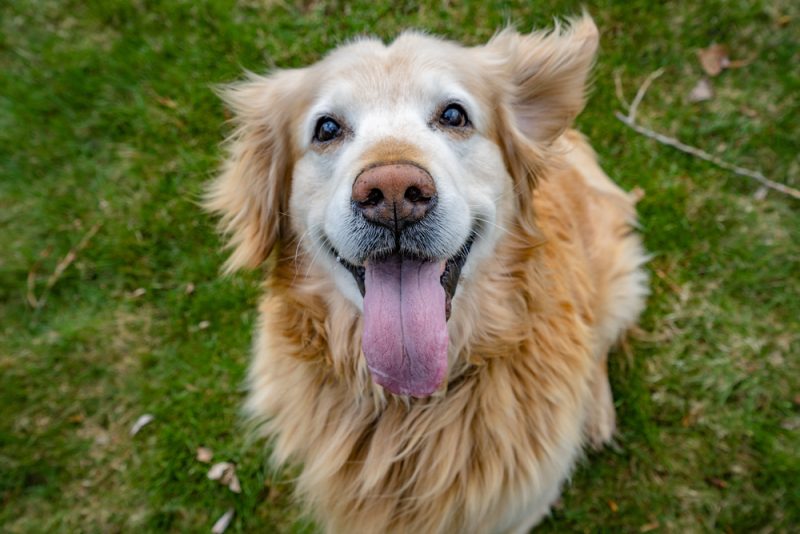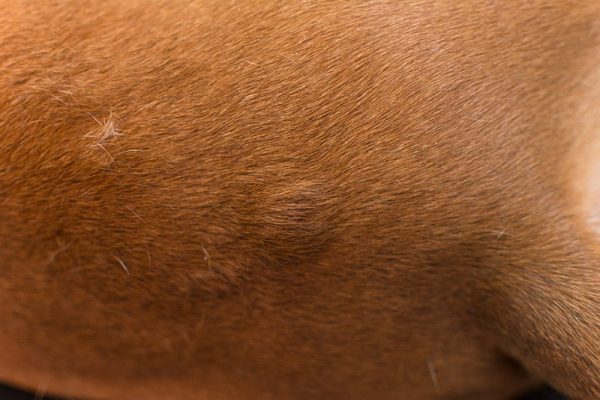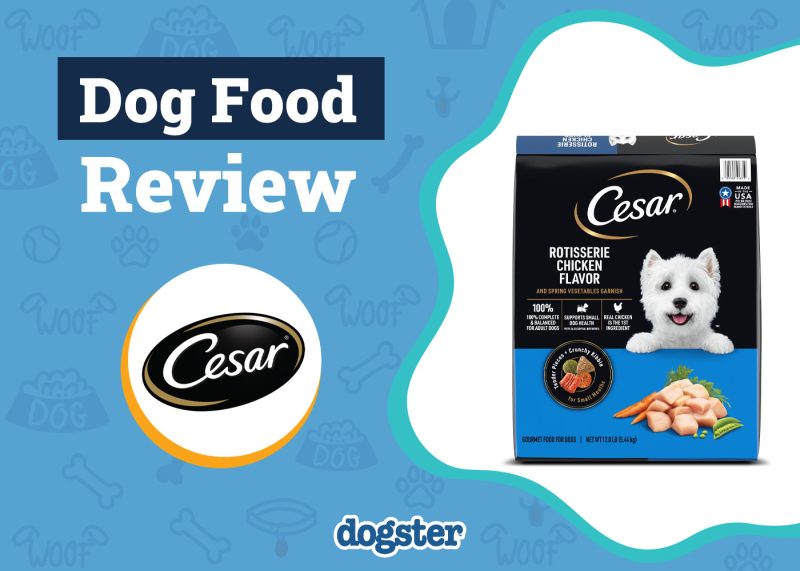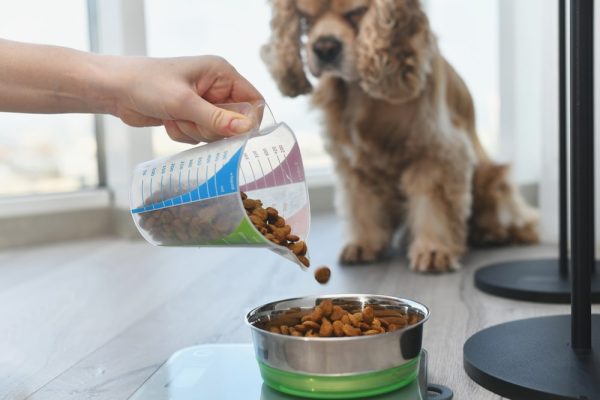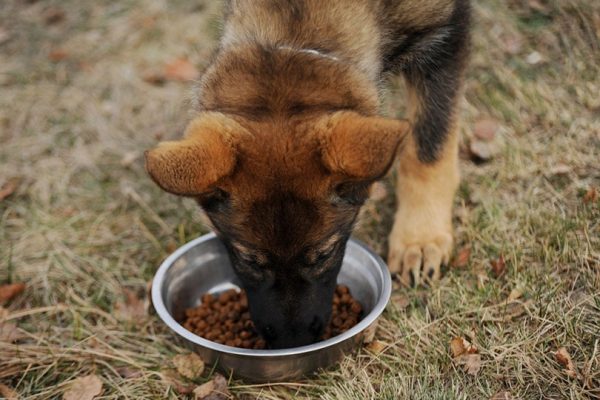Liver enzyme elevations are common in blood tests, whether your dog is unwell or just receiving pre-anesthetic blood work. You might be familiar with the “ALT” and “ALP” values seen on their blood tests. ALT (alanine aminotransferase) is an enzyme found in liver cells, and when it is elevated on a blood panel, it can indicate liver cell damage. ALP (alkaline phosphatase) is found in the bile ducts within the liver, and elevations can indicate gallbladder and bile duct problems.
The problem with these enzymes is that they don’t diagnose your dog but rather tell us there is a problem. So, if your vet has told you that your dog has some liver problems, you’ll want to know about the possibilities. Here are some of the most common problems.

The 8 Common Liver Problems in Dogs
1. Benign Growths
In the same way that dogs get lumps and bumps on the skin, the liver can also get abnormal growths. Thankfully, not all of these growths will be malignant. Liver cysts and nodular hyperplasia are benign growths that commonly occur in the liver.
Often, they can cause mild liver enzyme elevation but don’t cause any health problems. Congenital disease can cause multiple liver cysts to occur in Cairn Terriers, Bull Terriers, Beagles, and West Highland White Terriers. Occasionally, cysts can become very large and interfere with liver function, but surgical removal of these cysts is usually curative.

2. Cushing’s Disease
Cushing’s disease, or hyperadrenocorticism, to use the medical term, is a hormonal disorder involving the overproduction of the hormone cortisol. Cushing’s disease is very common in middle-aged to older small-breed dogs. Cushing’s disease causes excessive amounts of glycogen (an energy source) to be stored in the liver, leading to liver damage and ALT and/or ALP elevation.
Other signs of Cushing’s disease are increased appetite and thirst, urinating more than usual, a pot-belly appearance, panting, and thinning hair. If you suspect your dog has Cushing’s disease, your vet can perform a specific blood test to confirm this and discuss treatment options for your pup. Imaging of the adrenal glands, which produce cortisol, may also lead to suspicion of Cushing’s disease.
3. Chronic Hepatitis
Chronic hepatitis is a disease involving ongoing inflammation in the liver, leading to liver damage. Commonly, ALT is elevated, but ALP can also be elevated. There are certain triggers for the disease, but often, the inciting cause is not found, leading to a diagnosis of “idiopathic” chronic hepatitis, meaning the cause is unknown.
It can also be immune-mediated. Chronic hepatitis is most common in female, young, and middle-aged dogs. Certain genetic factors can play a role in chronic hepatitis, and some breeds are more prone to the disease. A liver biopsy is the only way to diagnose it. Specific and supportive medical treatment is available to help dogs with chronic hepatitis.

4. Toxic Injury
Some toxins can impact the liver and make dogs very unwell. Cycads are common garden plants that, unfortunately, contain cycasin, a potent liver toxin that can harm your dog if they eat any part of the plant, especially the seeds and the roots.
Xylitol, the artificial sweetener, can cause liver damage and low blood sugar. Certain molds can produce aflatoxins that harm the liver, which is why your dog should never eat moldy food. Blue-green algae, some mushrooms, and pesticides can also be a problem. If your dog has liver issues, you should ensure they don’t have access to anything toxic. Sometimes, only ALT is elevated in cases of toxicity.
5. Infection
An infection of the liver or gallbladder can cause ALT and ALP elevation. Bacteria can move from the intestine, up the bile duct, and into the gallbladder and liver in a condition known as cholangiohepatitis. Specific pathogens also have an affinity for the liver once they enter the body.
Canine adenovirus 1 and canine herpesvirus can cause acute liver disease. Immunization against adenovirus 1 is part of the core vaccination for dogs, and pups are most susceptible to herpes virus, so if you have an adult, vaccinated dog, generally viral causes are less likely.
Leptospira, Clostridium, and Mycobacterium bacteria can infect the liver, and bile cultures may diagnose these infections. Fungal and parasitic infections can also occur. Part of the testing for dogs with liver problems can involve looking for infectious diseases. If you would ever suspect your dog might’ve got an infection, give your vet a call and describe all the signs to them to get a second opinion.
If you need to speak with a vet but can't get to one, head over to PangoVet. It's our online service where you can talk to a vet online and get the advice you need for your pet — all at an affordable price!
6. Cancers
Malignant cancers can cause liver enzyme elevation. Commonly, the cancer will come from the liver itself, but sometimes, other cancers like lymphoma, pancreatic cancer, and mammary cancer can spread to the liver.
Hepatocellular carcinoma is the most common type of liver cancer, but other forms can occur too. Imaging modalities like ultrasounds or CT scans are good at detecting tumors. Surgery is sometimes possible depending on how widespread the tumor is. Sometimes, chemotherapy, radiation therapy, or palliative care are the best options.
7. Genetic Diseases
Some genetic diseases can cause liver damage and elevated ALT and ALP. Malteses, German Shepherds, and Curly Coated Retrievers can inherit glycogen storage disease, where glycogen accumulates in the liver.
Hepatic amyloidosis occurs in Shar-Peis, which can lead to the protein amyloid accumulating in the liver and secondary liver damage. Bedlington Terriers, Doberman Pinschers, Skye Terriers, and West Highland White Terriers may accumulate copper in the liver as they can inherit an inability to excrete it in their bile. If your dog has liver problems, especially if they are younger, it may be worth looking into genetic diseases in the breed.

8. Gallbladder Mucocele
A gallbladder mucocele occurs when thick mucus accumulates in the gallbladder, leading to reduced bile flow and potentially a complete blockage. Since this condition affects the bile ducts first, ALP is usually elevated, but ALT elevation can occur when the liver is damaged as a consequence of obstruction.
Shetland Sheepdogs are genetically prone to this disease, but it can occur in any breed. Cushing’s disease, hypothyroidism, and inflammatory bowel disease can also make dogs vulnerable to developing mucoceles. In the worst cases, a mucocele can lead to a life-threatening gallbladder rupture; however, if detected early, medication can be prescribed to treat the mucocele. Surgical gallbladder removal is the ideal treatment option.

Conclusion
As you can see, some liver issues are more severe than others. You should find a vet that you trust and discuss your dog’s specific situation with them since every circumstance will be different. If your pet has mild ALT or ALP elevations and is otherwise well, it is very different than a dog with severe enzyme elevations and signs of illness. Your vet will make a diagnostic and treatment plan to benefit your furry friend. We hope your pup’s problems are on the less serious side, and we wish them a speedy recovery.
- Related read: Chronic Hepatitis In Dogs
Featured Image Credit: SeventyFour, Shutterstock




